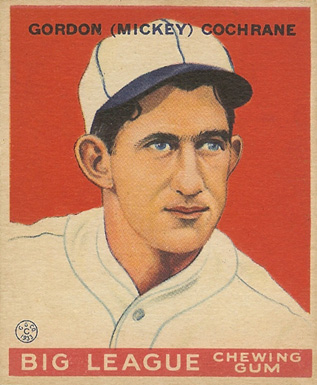
Elections to the Baseball Hall of Fame for 1947 followed yet another round of reform. The Baseball Writers' Association of America (BBWAA) continued to vote by mail but the Hall of Fame Committee had revised the procedures for that election and reduced its historical jurisdiction relative to the Old-Timers Committee. The BBWAA now considered major league players retired no more than 25 years. The reform seemed to work, as it elected four: Mickey Cochrane, Frank Frisch, Lefty Grove, and Carl Hubbell.
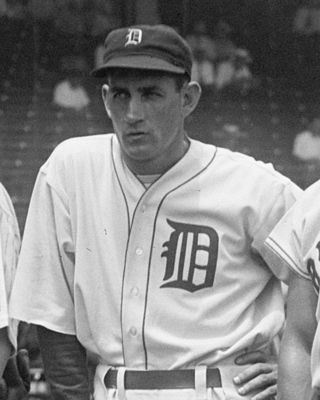
Elections to the Baseball Hall of Fame for 1949 followed the rules in place since 1947, which had governed two successful elections of recent players. The Baseball Writers' Association of America (BBWAA) voted by mail to select from players retired less than 25 years, with provision for a runoff in case of no winner. This year the runoff was necessary to elect one person, Charlie Gehringer. Meanwhile, the Old-Timers Committee, which met on no schedule and not since 1946, responded again to the continuing calls for election of more of the game's earlier stars. It selected Mordecai Brown and Kid Nichols.

Elections to the Baseball Hall of Fame for 2002 proceeded in keeping with rules enacted in 2001. The Baseball Writers' Association of America (BBWAA) held an election to select from among recent players; Ozzie Smith was elected.
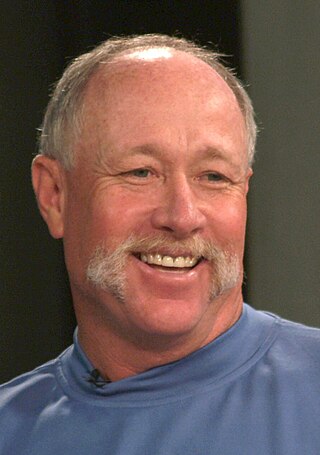
Elections to the Baseball Hall of Fame for 2008 proceeded according to revised rules enacted in 2001 and further revamped in 2007. The Baseball Writers' Association of America (BBWAA) held an election to select from among recent players, resulting in the induction of Goose Gossage. A restructured format for Veterans Committee voting resulted in the first successful election by that body since 2001, with five candidates earning induction, after the three elections in the intervening years had failed to produce any inductees. Selected by the Veterans Committee were former managers Billy Southworth and Dick Williams, and former executives Barney Dreyfuss, Bowie Kuhn, and Walter O'Malley.
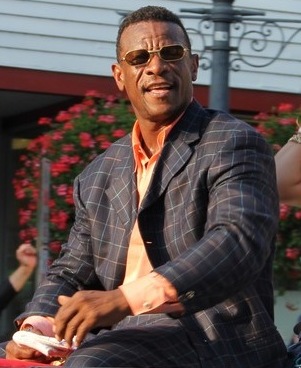
Elections to the Baseball Hall of Fame for 2009 proceeded according to revised rules enacted in 2001 and further revamped in 2007. The Baseball Writers' Association of America (BBWAA) held an election to select from among recent players, and elected Jim Rice and Rickey Henderson.
Elections to the National Baseball Hall of Fame and Museum for 1987 followed the system in place since 1978. The Baseball Writers' Association of America (BBWAA) voted by mail to select from recent major league players and elected two, Catfish Hunter and Billy Williams. The Veterans Committee met in closed sessions to consider older major league players as well as managers, umpires, executives, and figures from the Negro leagues. It selected Ray Dandridge from the Negro leagues. A formal induction ceremony was held in Cooperstown, New York, on July 26, 1987, with Commissioner of Baseball Peter Ueberroth in attendance.
Elections to the Baseball Hall of Fame for 1983 followed the system in place since 1978. The Baseball Writers' Association of America (BBWAA) voted by mail to select from recent major league players and elected two, Juan Marichal and Brooks Robinson. The Veterans Committee met in closed sessions to consider older major league players as well as managers, umpires, executives, and figures from the Negro leagues. It selected Walter Alston and George Kell. A formal induction ceremony was held in Cooperstown, New York, on July 31, 1983, with Commissioner of Baseball Bowie Kuhn presiding.

Elections to the Baseball Hall of Fame for 1979 followed the system in place since 1978, except that players who appeared on fewer than 5% of BBWAA ballots would now no longer be eligible in future elections. The Baseball Writers' Association of America (BBWAA) voted by mail to select from recent major league players and elected Willie Mays. The Veterans Committee met in closed sessions to consider older major league players as well as managers, umpires, executives, and figures from the Negro leagues. It selected Warren Giles and Hack Wilson. A formal induction ceremony was held in Cooperstown, New York, on August 5, 1979, with Commissioner of Baseball Bowie Kuhn presiding. The annual Hall of Fame Game, an exhibition contest, was played the following day; this was the first time that the induction ceremony and game were held on different days.
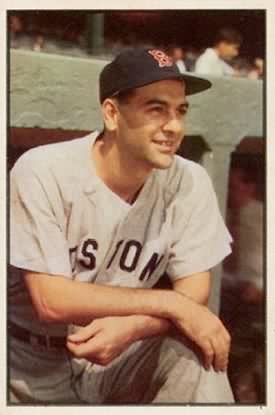
Elections to the Baseball Hall of Fame for 1970 followed the system of annual elections in place since 1968. The Baseball Writers' Association of America (BBWAA) voted by mail to select from recent major league players and elected Lou Boudreau. The Veterans Committee met in closed sessions to consider executives, managers, umpires, and earlier major league players. It selected three people: Earle Combs, Ford Frick, and Jesse Haines. A formal induction ceremony was held in Cooperstown, New York, on July 27, 1970, with Commissioner of Baseball Bowie Kuhn presiding.
Elections to the Baseball Hall of Fame for 1969 followed the system reintroduced in 1968. The Baseball Writers' Association of America (BBWAA) voted once by mail to select from recent major league players and elected two, Roy Campanella and Stan Musial. The Veterans Committee met in closed sessions to consider executives, managers, umpires, and earlier major league players. It selected two players, Stan Coveleski and Waite Hoyt. A formal induction ceremony was held in Cooperstown, New York, on July 28, 1969, with Commissioner of Baseball Bowie Kuhn presiding.
Elections to the Baseball Hall of Fame for 1968 followed rules revised in June 1967, which returned the Baseball Writers' Association of America (BBWAA) to annual elections without any provision for a runoff. In the event, the BBWAA voted once by mail to select from recent major league players, and elected Joe Medwick. The Veterans Committee met in closed sessions to consider executives, managers, umpires, and earlier major league players. It selected two players, Kiki Cuyler and Goose Goslin. A formal induction ceremony was held in Cooperstown, New York, on July 22, 1968, with Commissioner of Baseball William Eckert presiding.

Elections to the Baseball Hall of Fame for 1967 included a special election, as the Baseball Writers' Association of America (BBWAA) held its first balloting in an odd-number year since 1955. The special election was held due to some ineligible players having received votes in the prior year's balloting, and the BBWAA wanting "to give those eligible every opportunity" to be selected.

Elections to the Baseball Hall of Fame for 1966 followed the system introduced for even-number years in 1956. The Baseball Writers' Association of America (BBWAA) voted by mail to select from recent major league players with provision for a second, "runoff" election in case of no winner. Ted Williams tallied more than 90% on the first ballot. Meanwhile, the Veterans Committee was meeting annually to consider executives, managers, umpires, and earlier major league players. It selected Casey Stengel. A formal induction ceremony was held in Cooperstown, New York, on July 25, 1966, with Commissioner of Baseball William Eckert presiding. During his acceptance speech, Williams advocated for the inclusion of Negro league baseball players, such as Satchel Paige and Josh Gibson, in the Hall of Fame. Paige was inducted in 1971, and Gibson in 1972.

Elections to the Baseball Hall of Fame for 1964 followed the system introduced for even-number years in 1962. The Baseball Writers' Association of America (BBWAA) voted by mail to select from recent major league players with provision for a second, "runoff" election in the event of no player receiving enough votes for induction. The runoff was necessary this year, with Luke Appling the winner. Further, the eligibility of retired players was reduced from having retired 30 years prior to election to 20 years prior.
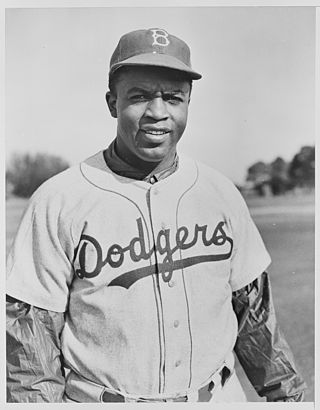
Elections to the Baseball Hall of Fame for 1962 followed a new system for even-number years. Since 1956 the Baseball Writers' Association of America (BBWAA) and Veterans Committee had alternated in their duties, but the BBWAA, voting by mail to select from recent major league players, had elected no one for 1958 and no one for 1960. Now there would be a second, "runoff" election in case of no winner. At the same time, the Veterans Committee resumed meeting annually to consider executives, managers, umpires, and earlier major league players.
Elections to Baseball Hall of Fame for 1960 followed a system established after the 1956 election. The Veterans Committee was meeting only in odd-numbered years. The Baseball Writers' Association of America (BBWAA) voted by mail to select from recent major league players, and as had been the case in 1958, elected no one. For the third time, the induction ceremonies in Cooperstown, New York, were canceled because there was no one to induct. This would be the last time until 2021 that no one was selected for induction to the Hall.
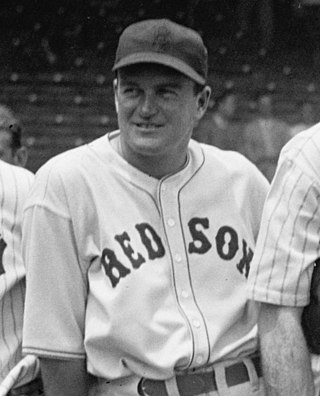
Elections to the Baseball Hall of Fame for 1956 followed a system that had been the object of criticism and reform in recent years, which would continue that summer. The Veterans Committee was meeting only in odd-number years to consider older major league players as well as managers, umpires, and executives. The Baseball Writers' Association of America (BBWAA) voted by mail to select from recent players and elected two, Joe Cronin and Hank Greenberg. A formal induction ceremony was held in Cooperstown, New York, on July 23, 1956, with Commissioner of Baseball Ford Frick presiding.
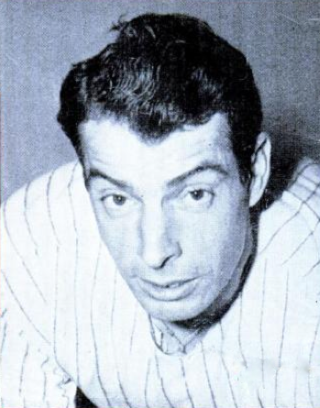
Elections to the Baseball Hall of Fame for 1955 followed a system established for odd-number years in 1953. The eligibility of retired players was extended; previously, a player could not be on the BBWAA ballot if he had retired more than 25 years prior. The ballot could now include those who had been retired for up to 30 years.

Elections to the Baseball Hall of Fame for 2010 proceeded according to rules enacted in 2001 and revised in 2007. As always, the Baseball Writers' Association of America (BBWAA) voted by mail to select from a ballot of recent players; one player was elected, Andre Dawson.
Elections to the National Baseball Hall of Fame for 2018 proceeded according to rules most recently amended in 2016. As in the past, the Baseball Writers' Association of America (BBWAA) voted by mail to select from a ballot of recently retired players. The results were announced on January 24, 2018, with the BBWAA electing Chipper Jones, Vladimir Guerrero, Jim Thome and Trevor Hoffman to the Hall of Fame. Jones and Thome were elected in their first year of eligibility.















